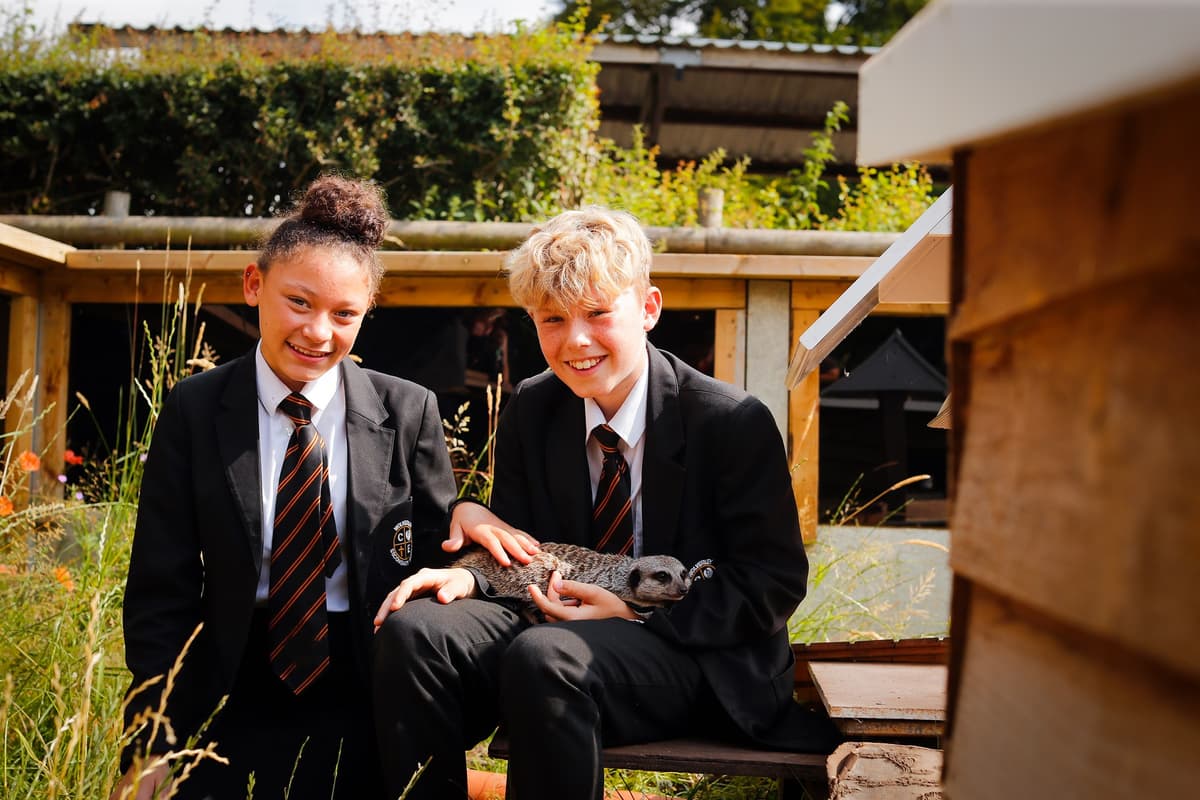Copyright thescarboroughnews

A secondary school in the West Midlands has built up a dedicated animal centre over the past 10 yearsIt is now home to 30 different species, which pupils have the opportunity to work withThe school offers dedicated animal care qualifications - but they help out in other classes tooBut some of the most important lessons the animals teach learners aren’t always academic ones Many of us realise just how much spending time with animals can enrich our lives. But as it turns out, it can also help to enrich young peoples’ educations, helping them not only learn animal care and science – but also important life skills. In a new series of special reports, our partner First News – the UK’s only newspaper specifically for young people – has spoken to some of Britain’s most unique schools. Recently, its team spoke to Wolverley CE Secondary School, a local authority-maintained Church of England school in Worcestershire. Wolverley is a secondary school with facilities that set it apart from most other state schools across the country. These include a ski slope, a climbing wall, and significantly, its own animal centre – with some truly unusual residents. Here are some of the unique species this school hosts, and how it uses its animal centre to set its pupils up for the future: What’s the deal with the animal centre? Wolverley’s dedicated animal centre looks after about 65 animals currently, of about 30 different exotic, farm, and companion species. They started arriving in 2014, with some of the first animals in their care being a Syrian hamster and a bearded dragon. The centre has kept expanding over the past decade, and now has all sorts of animals, including goats, meerkats, snakes, rabbits and sugar gliders. Pupils get the opportunity to feed, water, groom, handle, exercise and health check all of them. Those who end up studying animal care at the centre have even their own allocated set of overalls and a pair of boots – to both protect their school clothes and prevent the spread of diseases. There were also three dedicated animal technicians on staff, who worked all year round – including the school holidays – as well as eight casual staff to cover weekends and annual leave. It was important to remember that having animals in a school was a 24/7, 365-day job, the school added. “Many schools are starting to get animals, and Wolverley Animal Centre is keen to be an advocate for high levels of animal welfare despite being in a school situation,” staff said. Every time an animal was handled in its centre it was recorded, to ensure they didn’t get stressed and had plenty of rest. How do these on-site animals benefit pupils? The centre delivers BTEC qualifications in animal care, open to pupils in Years 10 and 11. There were currently about 83 pupils enrolled in these courses. But it also ran sessions for children with special educational needs and disabilities (SEND), and “cross-curricular” lessons for other pupils too. These included art class visits to draw the animals and science class visits to do speed = distance/time calculations with different species. Even English classes went along sometimes, to assist pupils with their creative writing. But the school said that most importantly, spending time with the animals also helped pupils to learn important life skills like compassion, empathy, respect, and work ethic; all values which were shared by it as well. For those learners who did study animal care at Wolverley, many went on to study it at a higher level at local colleges, with some even going on to have animal-related careers. The school also had strong links with local organisations, with its students getting to hear from guest speakers from charities like Cats Protection, Animal Aid, The Blue Cross, the RSPCA and the centre’s vet surgeon herself. “She often brings her ultrasound machine to lessons and gives career talks,” the school added. The centre even runs annual trips to Severn Valley Alpacas and to Dudley Zoo – to help its pupils see and experience species they wouldn’t ordinarily get the chance to work with. This article is produced in partnership with First News, an award-winning newspaper for children read by 2.6 million each week. To find out more about getting First News at home or in your child’s school, or even to browse its other online offerings for young people, you can visit its website here.



